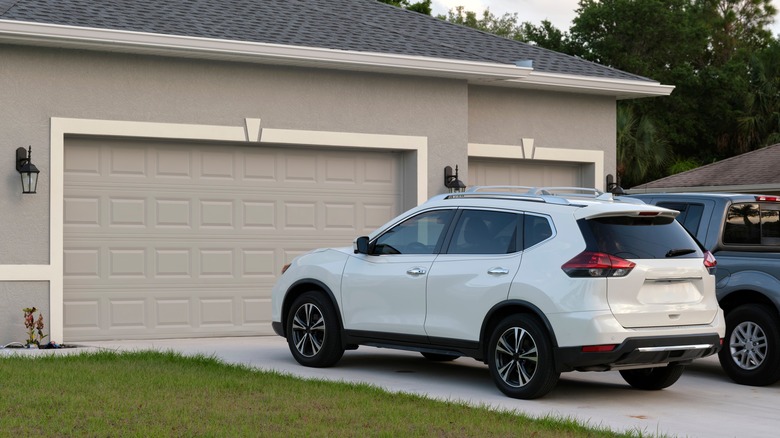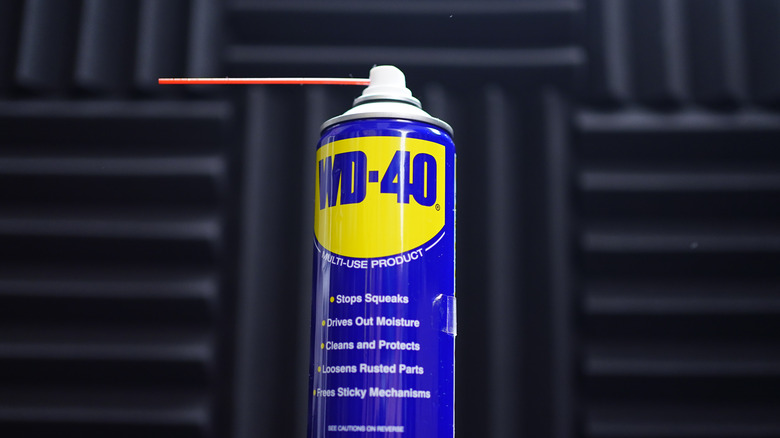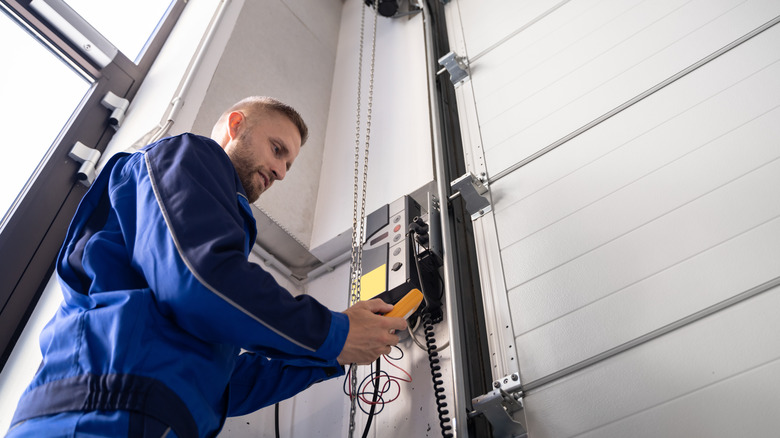Why You Should Think Twice Before Using WD-40 On Your Garage Doors
While a garage may look like nothing more than a painted hunk of sheet metal, the mechanism behind it is quite elaborate. The simple act of lifting an automatic garage door requires a careful interplay between a motor, chains, and hinges, all designed to work in a very specific way to prevent lockups and damage. If something starts messing with this process, be it a stuck chain or a squeaky hinge, that's a sign you need to lubricate the moving parts.
When that time comes, what should you use to perform said lubrication? Well, if the contents of your garage are anything like most others in the world, your first instinct may be to crack open a can of WD-40. No one would fault you for that assumption. WD-40 is commonly used as a lubricating agent, after all. However, as it happens, it's actually one of the last things you should use on any of your garage's components.
What does WD-40 do to your garage?
While WD-40 does work well as a lubricant, that isn't its primary use. WD-40's main use is as a degreasing solution. It's very slippery, making it good for untreated metal like the hinges and knob of a door, but when it comes to treated surfaces or specially-made parts, WD-40's chemicals can actually cause lasting damage.
For one thing, most garage doors are treated with special powders and chemical coatings designed to make them weather-resistant. If you spray the door with WD-40, you'll rinse those chemicals right off, leaving you with a slab of metal that will rust once it's exposed to rain. Additionally, several components of a garage's lifting mechanism are usually made from petroleum-based materials like rubber or plastic. Petroleum is inherently greasy, and WD-40 doesn't get along with grease. Ergo, spraying those parts with WD-40 can cause them to soften and deteriorate, which could lead to full-on breakage once the door's weight is put on them a few times.
What to use on a squeaky garage door
If WD-40 is a no-no, then what are you supposed to use if your garage door and its motor start squeaking up a storm? Don't worry; there's an entire sub-industry ready to handle this. If you visit your nearest automotive supply store or check online storefronts like Amazon, you can find several professional-grade lubricants designed specifically for use on a garage door and its moving parts. These lubricants usually cost around $7 for a 10-oz can and can be safely sprayed onto any solid components of your garage door's mechanism just like WD-40. The difference, of course, is that these lubricants are made of safe chemicals that won't damage them or erode their structural integrity.
Remember, a lubricated garage door is a happy garage door. You should use a garage door lubricant to loosen up the door, chains, pulleys, and other moving parts at least twice a year.


